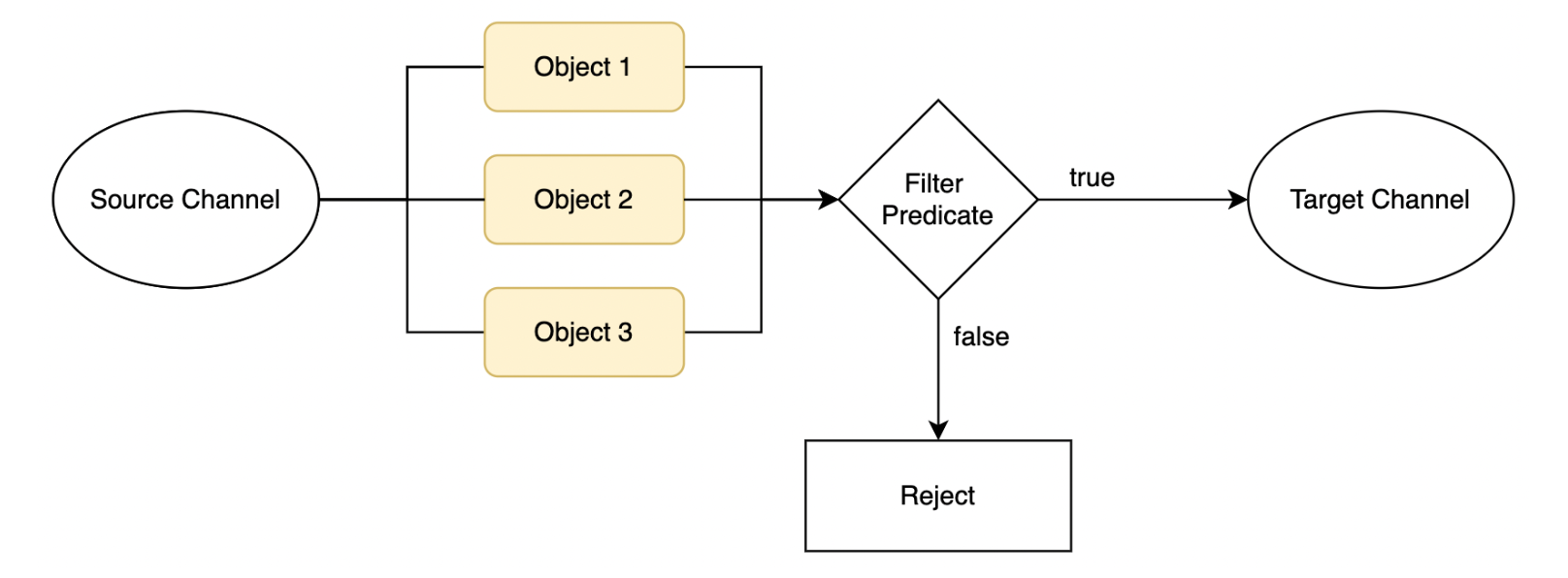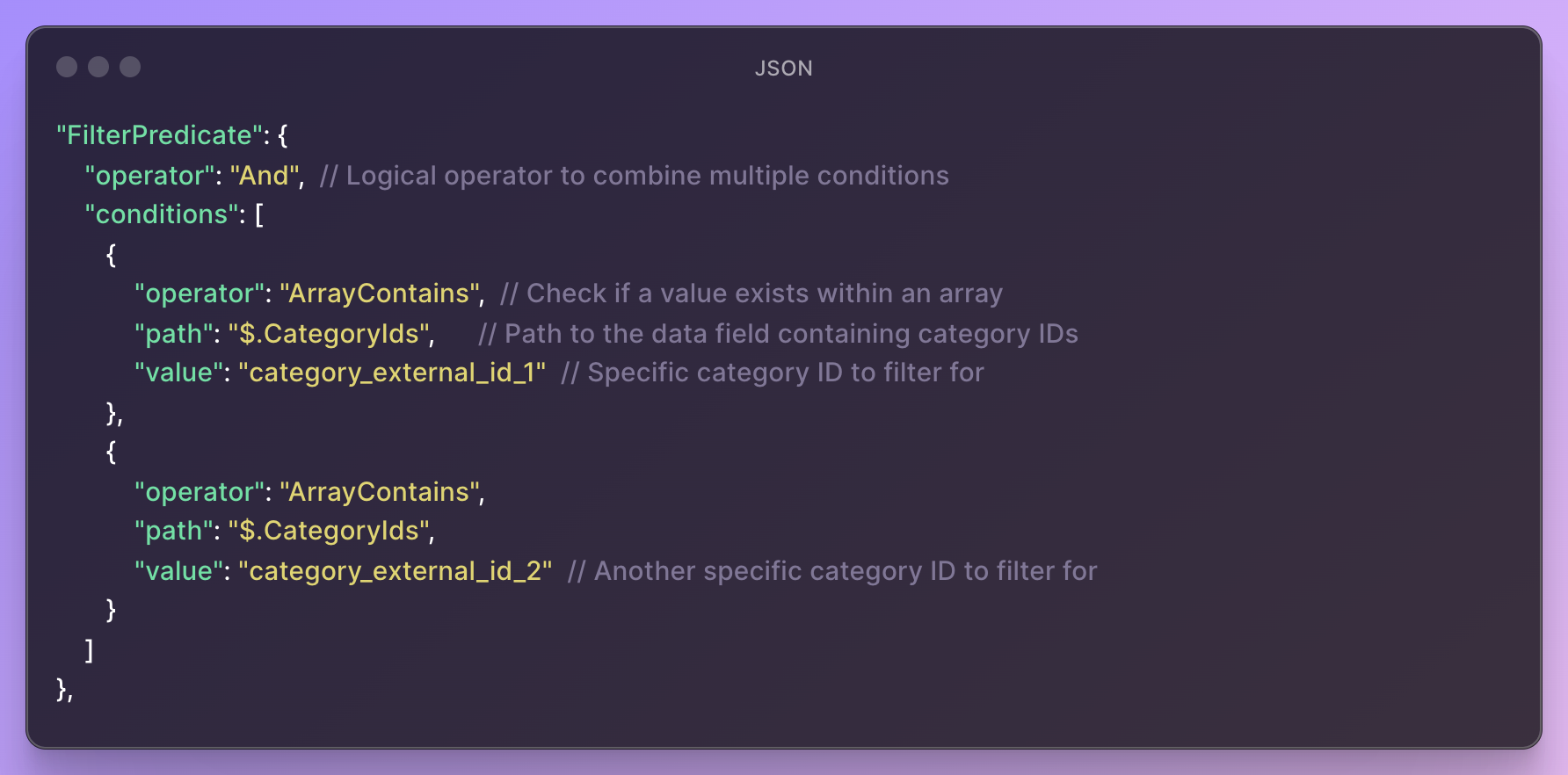Understanding Data Filtering: A Closer Look
Data filtering – the cornerstone of Qilin.Cloud’s functionality, is a crucial process in the digital age, where information flows like a rapid river. It acts as a sieve, meticulously sorting and selecting specific data points from a large dataset. Imagine sifting through a bucket of beach sand – you might be looking for seashells, smooth pebbles, or maybe even hidden treasures. Data filtering operates similarly, allowing you to find the specific “gems” you need within a vast amount of information.
Core Functionality: Filtering for Accurate Data Movement
Within data integration, channel pipelines act as pathways connecting various systems, much like the trade routes used by merchants. Filtering like a digital customs checkpoint meticulously examining data objects as they travel through channel pipelines. These pipelines act as the digital arteries connecting various systems within your e-commerce ecosystem. But why is filtering so important?

When to Filter: Ensuring Accurate Data Movement
- Fields Used for Filtering: This specifies which data points (e.g., product ID, customer location) are used for filtering decisions.
- Filter Conditions: These define the criteria for filtering, such as “equals”, “greater than”, or “contains”. Imagine specifying the size or type of goods allowed for transport through a specific route.
- Path, Value, and Operations: This details the specific values and operations used in the filtering logic. It’s like defining the exact route and handling procedures for the goods.
Enforcing the Rules: The Power of Filtering Operators
Filtering acts as the enforcement mechanism for these user-defined rulesets. Qilin.Cloud provides a comprehensive set of filtering operators to cater to various data types and scenarios. Here are some examples:
- Generic Operators: These address fundamental checks, like identifying null values or performing comparisons (e.g., “Equals”, “Not Equals”). This ensures data objects meet basic criteria before being transmitted.
- String Operators: They cater to string manipulation, enabling filtering based on specific text patterns or content (e.g., “Contains”, “Not Contains”). Imagine filtering customer names to include only those starting with the letter “A”.
- Number Operators: These facilitate comparisons between numerical values, ensuring data adheres to defined ranges (e.g., “Greater Than”, “Less Than or Equal To”). You can filter product data to include only items within a specific price range.
- Array Operators: They handle data structures like lists, allowing for filtering based on the presence or absence of specific elements (e.g., “Array Contains”, “Array Empty”). Imagine filtering customer data to exclude those with missing purchase history entries.
- Logical Operators: These empower the creation of complex filtering rules by combining simpler conditions using logical connectors like “And”, “Or”, “Not” and “XOr”. This allows for granular control over data transmission, ensuring only data objects meeting all your defined criteria are allowed to pass through the channels.
Let's explore some real-world filtering scenarios using sample code examples from the Qilin.Cloud demo:
Imagine you are managing an online store. Would not it be helpful to easily focus on specific products for different marketing campaigns? Qilin.Cloud’s filtering functionality empowers you to do just that!
- Non-Logical Operator: Filtering by Brand ID
Let’s say you want to promote a particular brand’s summer collection. Think of a filter as a digital sieve. Here’s how it works:

In this example, the filtering condition checks if the “BrandId” within the data object (represented by the path “$.BrandId”) is equal to “external-brand-123“. Only products matching this criterion will pass through the filter. Imagine a basket overflowing with clothes – the filter helps you quickly sort and select just the summer items from your favorite brand!
- Logical Operator: Filtering by Category
Now, imagine you want to identify popular items for a back-to-school sale. Qilin.Cloud lets you combine multiple filtering conditions. Think of it as using two sieves together!

From JSON Predicate to Filter Predicate Model
The code examples above showcase JSON predicates, which are a way to express filtering conditions in a human-readable format. Qilin.Cloud leverages these JSON predicates to create its internal Filter Predicate Model. This model translates the user-defined filtering logic into a format that the platform can understand and execute efficiently within your data pipelines.
Benefits of Data Filtering
These hands-on examples showcase just a fraction of the filtering capabilities offered by Qilin.Cloud. The platform provides a comprehensive set of operators that cover a variety of data types and scenarios. This empowers you to create complex filtering rules tailored to your specific needs, ensuring only the most relevant and accurate data flows through your pipelines. By leveraging this precise data selection, you unlock the true potential of your data, transforming raw information into actionable insights that drive significant business value.
Now, let’s see how Qilin.Cloud’s filtering empowers businesses in practical scenarios:
- Targeted Marketing Campaigns: Imagine a marketing agency managing social media campaigns for a clothing retailer. They only require customer data for active users within a specific age range and location. Using Qilin.Cloud’s filtering capabilities, the agency can set rules to filter out data objects based on user age and location. This ensures only relevant customer data reaches their social media platform, allowing for more targeted and effective marketing campaigns.
- Enhancing Data Quality: Data quality is critical for accurate analysis and decision-making. Qilin.Cloud’s filtering empowers you to identify and exclude incomplete or erroneous data objects. For instance, an e-commerce platform might want to filter out product information missing crucial details like price or description. This ensures only complete and accurate product data reaches their sales channels, ultimately leading to a smoother customer experience.
- Streamlining Compliance Processes and Security: Many industries, especially those dealing with sensitive customer information, have strict compliance regulations regarding data handling. Filtering helps ensure compliance with these regulations. In the e-commerce sector, a company might want to filter out customer data fields that are not required for processing orders. For instance, filtering out customer purchase history data when sending marketing emails ensures compliance with regulations like GDPR (General Data Protection Regulation) or CCPA (California Consumer Privacy Act) that govern the use and sharing of customer data. This safeguards sensitive customer information and fosters trust with your customer base.
Join the Crowd, Start disrupting e-Commerce, Become a Qilin, Do the Extraordinary – there are a lot of terms, but only one decission:
Start your career at Qilin.Cloud
Beyond Streamlining Data Flow: Empowering Users
- Focusing on High-Value Transactions: For fraud detection analysis, you might want to filter out low-value transactions and focus on data objects exceeding a specific threshold amount.
- Analyzing Customer Behavior: To understand customer buying patterns, you can filter customer data based on specific purchase categories or product types.
Conclusion
Filtering serves as a cornerstone for ensuring data accuracy and integrity within the ever-growing landscape of data integration. Qilin.Cloud’s powerful filtering capabilities empower developers and businesses to establish well-defined data exchange channels. It fosters trust, streamlines processes, and ultimately drives better decision-making through reliable data. Additionally, it empowers users with greater control over data transmission, allowing them to tailor data flows to their specific needs. By leveraging the power of filtering, you can transform raw data into actionable insights. Imagine a skilled jeweler meticulously sorting through a treasure chest, separating genuine gems from worthless pebbles. Filtering in Qilin.Cloud empowers you to do the same with your data. By precisely selecting only the relevant and accurate information, you can unlock the true potential of your data, leading to more informed business decisions, optimized workflows, and ultimately, a significant competitive advantage.

0 Comments